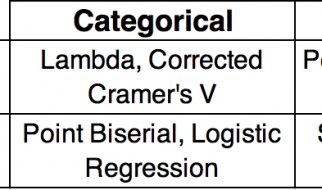
One of the most common behaviors seen among those with narcissism is actions that threaten their relationships especially that which suggests they are seeking out other romantic partners.They may flirt either overtly or in a more calculating manner while pretending they don?t see that you?re there or they may spend time discussing how attractive certain others are to them along with other desirable characteristics especially characteristics you don?t display (e.g. Peterson & DeHart, 2014).
Until recently it wasn?t entirely clear why narcissists would continue behaviors that could ultimately end a relationship when they are also constantly seeking admiration and reinforcement that everyone want to be in their company. The loss of a significant other through their own behavior would seem counter intuitive, as rejection would create problems for their self esteem.
This is something that most believe narcissists struggle with on some level despite seeming overly confident of their abilities and appeal. It?s been suggested that these behaviors might be employed strategically by narcissists to make their partners feel jealous. Many of narcissists? relationship-threatening behaviors such as appearing unattached or uncommitted, pursuing attractive alternative partners, flirting, discussing attractive alternatives with you, etc. are behaviors often used to create jealousy in a romantic partner.
Where Does Narcissism Come From?
While there are a number of more complex conceptualizations of narcissism, the most basic suggest it results from a conflict between two contradictory sets of beliefs about the self. On the one hand, there are firmly established feelings of inferiority. On the other hand, there are surface-level feelings of superiority that keep the narcissist unaware of her or his sense of inadequacy. The ability to mask the feelings of inadequacy with a sense of superiority requires continuous reinforcement from others.
Narcissism is believed to cover over a core of self-doubt and a lack of self worth. One way of thinking about where narcissism comes from is to view it as a coping mechanism. While their weak self-concept is repressed they can?t always manage to subvert it entirely and it becomes overwhelming to them when it rears its head.
This is largely due to the fact, they lack coping mechanisms for dealing with it. In order to hide their low self image from even themselves they develop narcissistic qualities in an effort to alter their own self perceptions. They also strive to alter what they believe to be other people?s views of them.
However, their method of altering their self perceptions is not healthy or adaptive. One of the most common methods they use is jealousy. They do this based on what they know, deep down, would cause them to become jealous. It may or may not make you jealous but in the narcissists mind they won the battle.
Narcissists also often intentionally do things that will make practically anyone feel genuinely insecure and jealous. When you become upset, they will then blame you overreacting, pointing out how this is evidence of all the problems that you have.
Jealousy Inducing Motives
Mattingly et al. (2012) proposed five jealousy-inducing motives that relate to narcissism. These include:
a) acquire power/ control
b) exact revenge
c) test/strengthen the relationship
d) seek security
e) compensate for low self-esteem
Much of this type of behavior is triggered when the narcissist themselves feels jealous of something related to their romantic partner. Their responses are tactical in that some of a narcissist?s relationship-threatening behavior is strategic to re-establish status quo.
Dominance and revenge motives are common responses when narcissists are provoked or when their self esteem is threatened. When they feel jealous their first response is to try to regain control over the situation to gain leverage. They then attempt to exact revenge to show their partner that they won?t be treated this way, despite the fact that the narcissists jealousy is often unfounded.
The last three motives are defensive efforts to shore up their poor self-concept. They are trying to test whether their partner really cares about them, seeking relational security and compensating for low self-esteem (Tortoriello, et al., 2017).
If you are dating someone who is high in narcissistic traits and plan to remain in the relationship, and the person seems to constantly try to make you jealous there are a few things you can do. First, determine what motives may be behind it. This will give you a hint as to whether they are trying to fuel your jealousy just as a response to feeling jealous themselves, or whether their actions are compensatory behaviors. Once you have this information, you may be better able to deal with it when your partner attempts to induce jealousy in you due to their own insecurities.
References
Mattingly, B. A., Whitson, D., & Mattingly, M. B. (2012). Development of the Romantic Jealousy-Induction Scale and the Motives for Inducing Romantic Jealousy Scale. Current Psychology: A Journal for Diverse Perspectives on Diverse Psychological Issues, 31(3), 263?281
Peterson, J. L., & DeHart, T. (2014). In defense of self-love: An observational study on narcissists? negative behavior during romantic relationship conflict. Self and Identity, 13(4), 477?490.
Tortoriello, G. K., Hart, W., Richardson, K., & Tullett, A. M. (2017). Do narcissists try to make romantic partners jealous on purpose? An examination of motives for deliberate jealousy-induction among subtypes of narcissism. Personality and Individual Differences, 114, 10?15.
Natalie C. Frank has a Ph.D. in Clinical Psychology. She specializes in Pediatric Psychology and Behavioral Medicine.

If you enjoyed reading this story, you might also like these:
Can Narcissists Feel Empathy?
Many people believe that narcissists are incapable of experiencing empathy but research suggests this may not be true.
medium.com
You Can Say It?s Not Personal, But It Almost Always Is
There shouldn?t be a distinction between business ethics and personal ethics when people act as if there is, it says?
medium.com
You can find links to my other work on Medium and follow me here. Thank you for reading and for supporting Mental Gecko!


